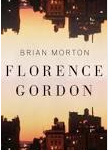 Women of a certain age tend to become invisible, but not Florence Gordon, a writer and the title character of Brian Morton’s alternately hilarious and moving novel. “If you’re an old feminist, anything you say, by definition, is strident and shrill,” is almost the first thought Flo Go expresses. Whip-smart and no-nonsense, Florence Gordon is long divorced, and likes it that way. She isn’t even that happy that her only child, Daniel, his wife, Janine, and their daughter, Emily, are living near her on the Upper West Side (because where else would she live?) while Janine completes a fellowship at Columbia University.
Women of a certain age tend to become invisible, but not Florence Gordon, a writer and the title character of Brian Morton’s alternately hilarious and moving novel. “If you’re an old feminist, anything you say, by definition, is strident and shrill,” is almost the first thought Flo Go expresses. Whip-smart and no-nonsense, Florence Gordon is long divorced, and likes it that way. She isn’t even that happy that her only child, Daniel, his wife, Janine, and their daughter, Emily, are living near her on the Upper West Side (because where else would she live?) while Janine completes a fellowship at Columbia University.
Of course there are other reasons for a prolonged stay in New York. Janine has always idealized Florence as a feminist thinker, and had read some of her work before she met and became involved with Daniel. She’d like a closer relationship. So would Emily, who is deciding whether and where to go back to college, and is under pressure to reunite with an old boyfriend, known to her parents as “Broccoli Boy.” Janine’s and Daniel’s relationship might be on the rocks. Florence’s ex-husband Saul needs a job. There’s love, and need, and they are inextricably related.
Flo Go is not shrill, but she is a little cranky and is definitely no-nonsense, and wishes the others would just get on with their lives so she can work. She’s writing a memoir of her early days in the second wave feminist movement. Like any writer, she has her doubts, happily resolved in this case when her long-time editor tells her how much he loves her pages. But he couples that with the news that he must leave his job to treat his cancer which has reappeared. It’s the first of many losses, ones that will be familiar to readers struggling to cope with the needs of aging parents.
When Flo Go receives a critical valentine from Martha Nussbaum she is briefly much in demand. She needs a helper, and Emily becomes her research assistant. They argue about Emily’s need to stay in contact with her smartphone at all times, and the relationship gives Emily a glimpse of who her grandmother is, and who she herself might become. Emily, reading some of her grandmother’s early work, thinks that “none of it reminded her of her grandmother at all.” That thought in turn makes Emily think about whether writers, and people, are products of their times. She concludes that Doris Lessing, or at least “The Golden Notebook,” is dated, but when she repeats the observation to Florence, her grandmother’s response is a terse “Read it again.”
This family shares a sense of humor and a certain ironic detachment from their feelings: they just don’t want to talk about it. You know these people. You are probably related to them. Morton tells his stories in multiple very short chapters, shifting effortlessly among points of view while making each character distinctive. This technique keeps the novel moving at a fairly fast clip, while still leaving his characters time to grow. By the time the novel is done, Emily, and Florence, have a new understanding of needs, their own and each other’s, and the limits of love and the ability to help. It’s a deeply satisfying and fully credible resolution to this examination of modern life.
by Alexandra Bowie
Have a book you want me to know about? Email me at asbowie@gmail.com. Follow me on Twitter @abowie917.
This post was updated March 29, 2015.
